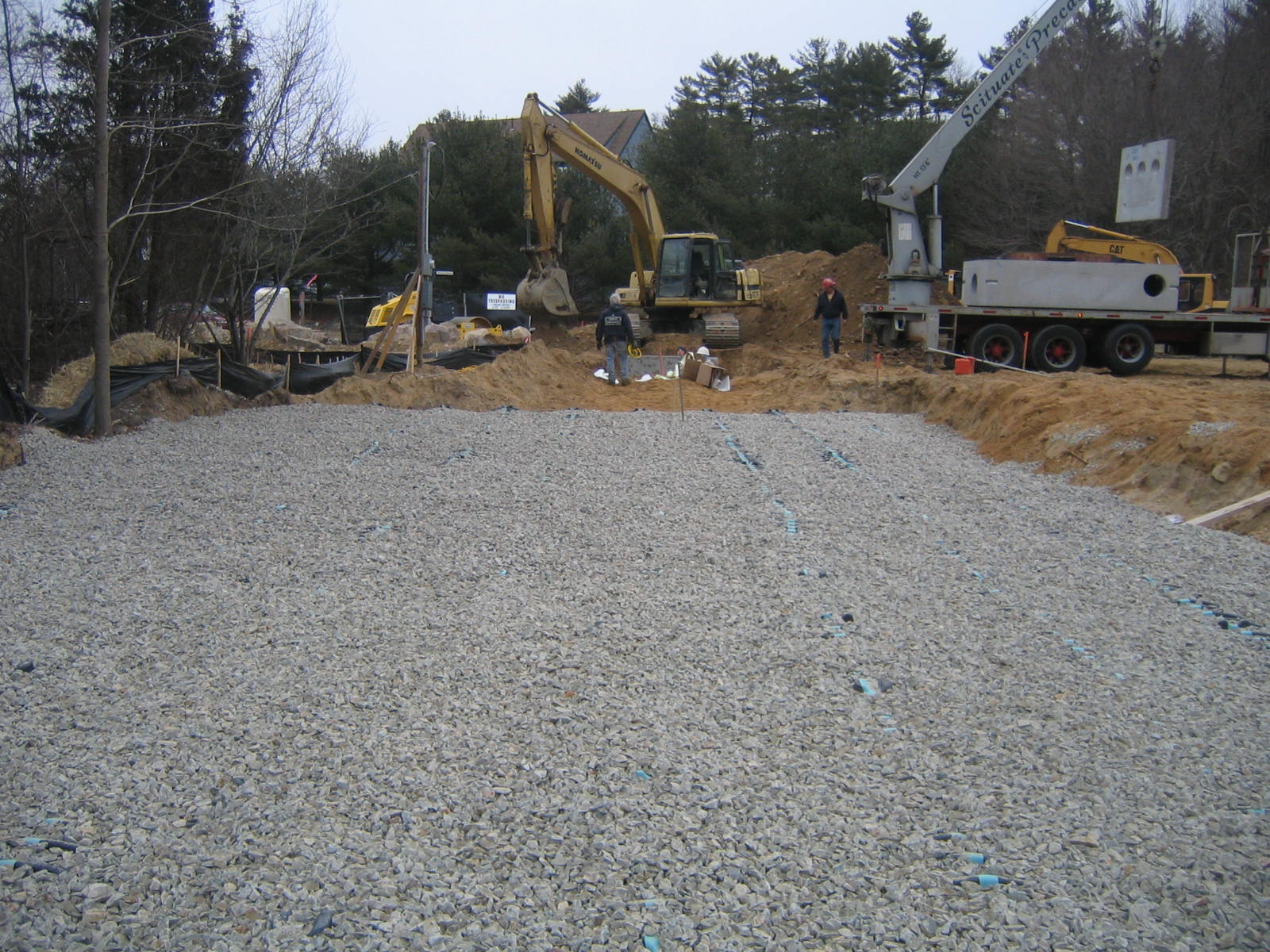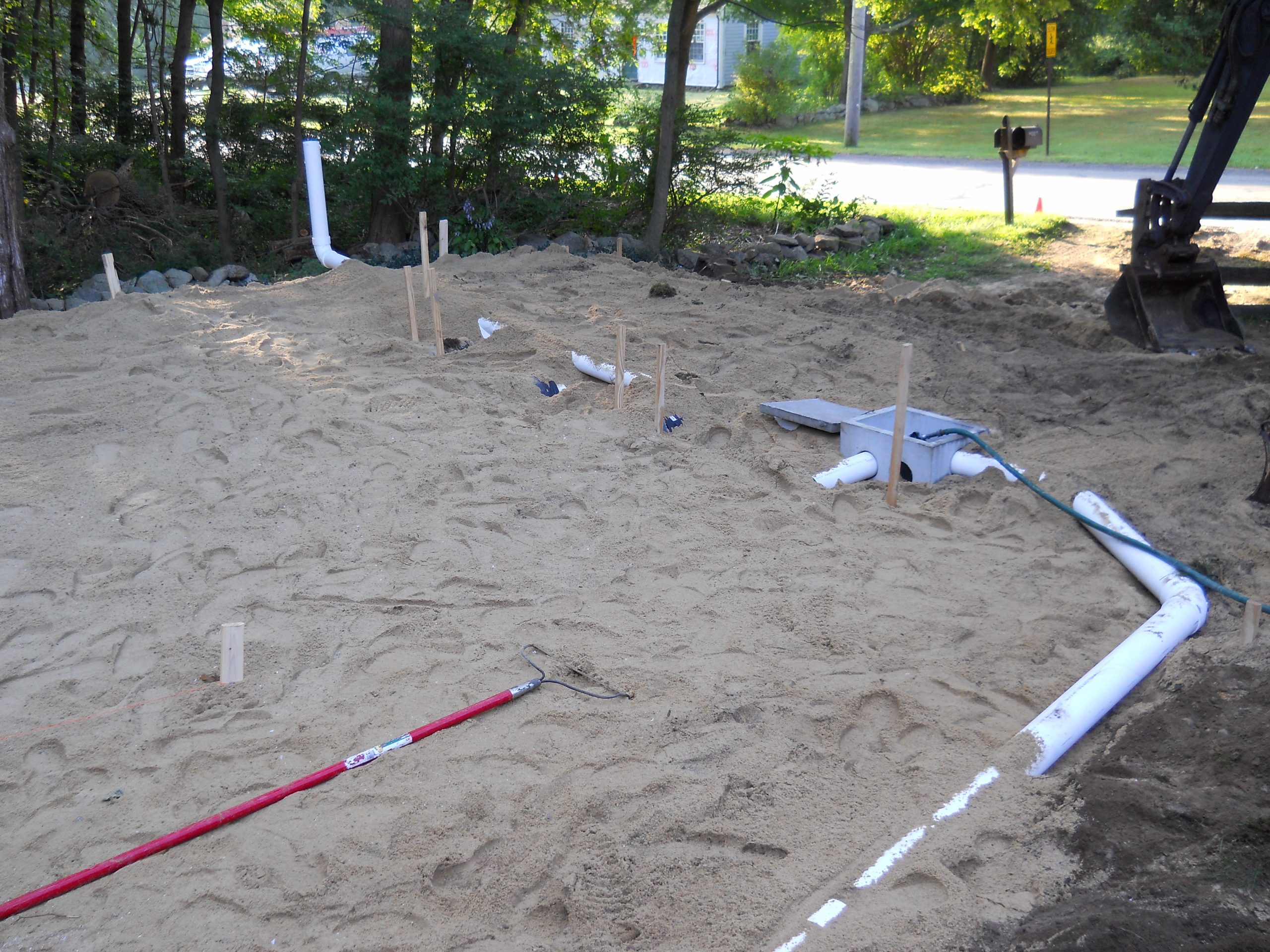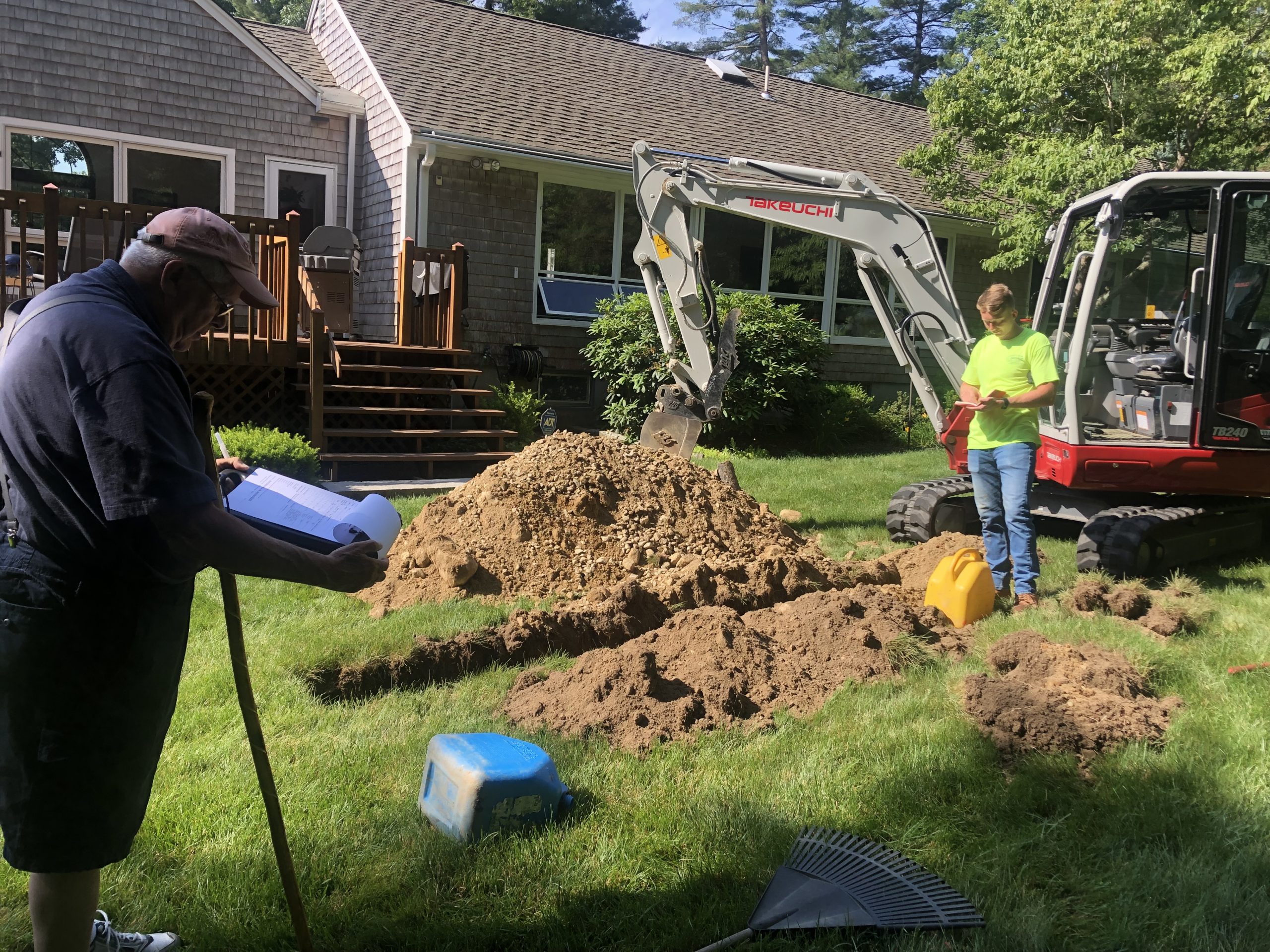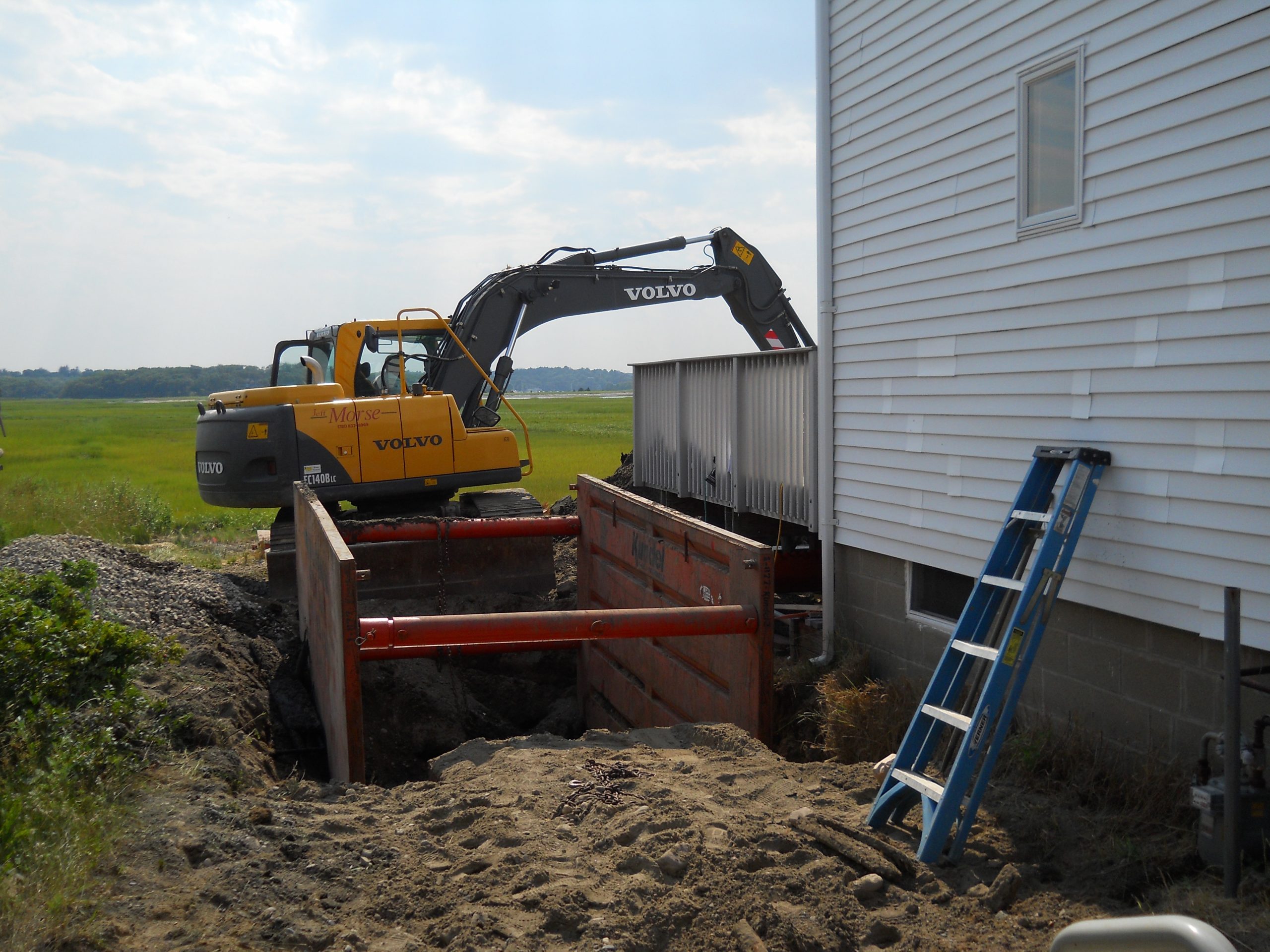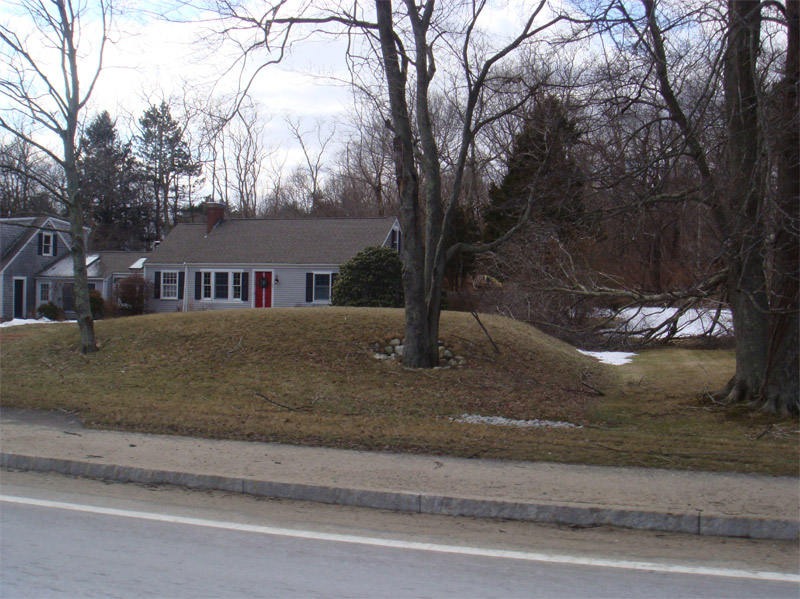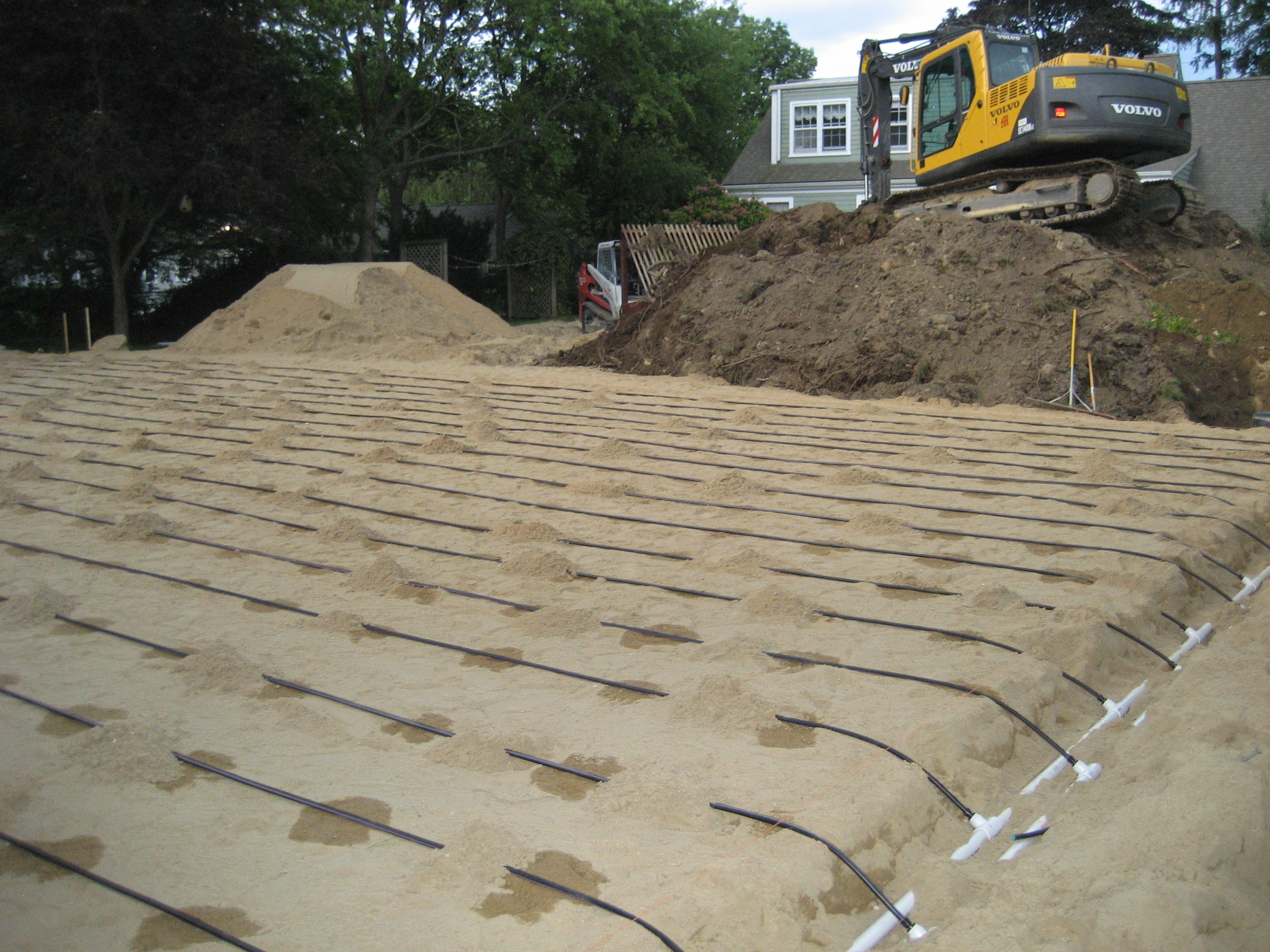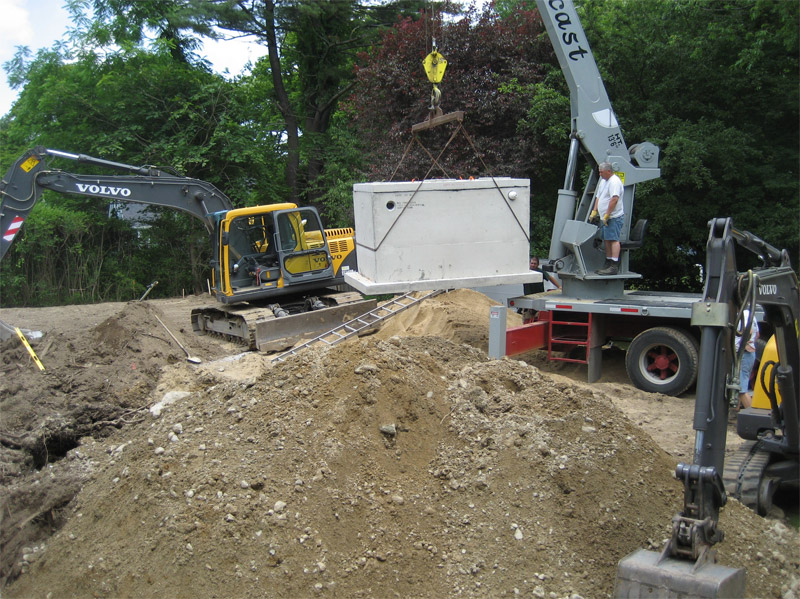Title V Septic Professional Services
We work closely with homeowners and real estate agents to guide you through the Title V process. We offer free consultations regarding your situation and offer a Title V Seminar for any Real Estate Agent or Office in Massachusetts.
Title V Services Offered
- Soils Analysis & Percolation Testing
- Title V Inspections (Including video inspection services)
- Design of Pressure-distribution Septic Systems
- Design of Conventional Septic Systems
- Design of Alternative Treatment Systems (Presby, Fast, Geoflow, Hoot, Septitech, Infiltrator & Eljen certified)
- Construction Phase Inspections
- Troubleshooting and Problem analysis
- General Title V Consulting to homeowners, engineers and real estate professionals
Pressure-dosed leaching field, Carver, MA
Gravity-fed Presby Enviro-Septic, Cohasset, MA
Performing soil evaluation & Perc Test, Norwell, MA
Installing a septic tank along Salt Marsh, Scituate, MA
Mounded systems like this can be avoided! Ask us how.
GeoFLOW and HOOT I/A System Design, Scituate, MA
Frequently Asked Questions
Do you inspect or design septic systems?
Yes. Morse Engineering has licensed Title 5 inspectors, Soil Evaluators and Registered Engineers on staff that perform both inspections and designs of septic systems.
What’s involved in a septic inspection?
While some requirements vary based on the Town, the general inspection can be summarized in two separate parts, the functionality part and the environmental impact part. The functionality check, is to ensure that the system is functioning properly. The inspector will open the cover to the septic tank and distribution box/leaching facility to inspect the structural integrity of the components, verify the backup. If everything looks good, the environmental impact portion of the inspection will be performed. The environmental protection part involves the inspector making a determination that the bottom of the septic system is above the seasonal high groundwater table at the site. This can be accomplished through records research at the local board of health, performing an on-site soil evaluation or other approved method.
*Some towns have different regulations regarding inspections. It is important to check with the inspector that they are licensed and familiar with the Town the system is located in.
Can cesspools pass an inspection?
Yes and No. Cesspools are allowed to pass inspection per state requirements. Some towns prohibit cesspools from passing inspection and are considered automatic failures. It is important that your inspector is familiar with each Town’s requirements with respect to cesspools.
What’s involved in designing a new septic system?
Designing a new septic system can be broken down into 5 steps.
- Performing a land survey of the property to determine property lines and topographical sitefeatures and elevations.
- Performing a perc test at the property to determine the groundwater table and types of soils at the site.
- Preparing the Design Plan. The plan will be prepared in accordance with Title 5 requirements and local board of health requirements which will include a depiction of how the new septic system is laid out, proposed changes in grading at the site and including all the construction specifications necessary to permit and construct the new system.
- Permitting. The plan will require approval from the local Board of Health and potentially the Conservation Commission if wetlands are present.
- Construction Phase Inspections. During construction of the septic system, the design engineer performs various inspections to confirm that the system is being properly built. Once completed, a plan called an “Asbuilt Plan” is prepared and submitted to the Town to document system compliance. A “Certificate of Compliance” is then issued, which can be used to convey the property.
How long does the process of a new septic system take?
Engineering design, including the steps identified above (survey, perc test, design permitting) can take 3-8 weeks to complete depending on the complexity of the job, the availability of the local Board of Health to conduct a perc test and whether wetlands are present. Typically once a plan is approved, the installation of an average residential septic system takes 7-10 days. The home plumbing is “online” almost the entire time and the residents of the home do not typically need to move out during the process.
When should a new septic system be installed?
There really isn’t a better time of year than not to install a new septic system. They can be installed year round, including in the winter as long as there is not excessive frost in the ground. Typically systems installed November – April cannot be fully completed with new grass due to the inability for grass to grow over the winter. Systems installed during November – April typically require the installer to come back during warmer weather and perform final loaming and seeding of lawn areas.
How do I pay for a system design or installation?
Typically the engineer requires a deposit for the design upfront with the remainder of their fees collected upon completion of their design. Installation contractors typically require a similar breakdown of their payments when they’re proposal is accepted and once they have completed portions of the work.
Some engineers and contractors will wait and “be paid at closing” for their services, others will not. It is important that you discuss your payment arrangements up front with your selected engineer and contractor.
Who does the actual installation of the septic system?
After your engineer has prepared the design plans, we recommend that you obtain three quotes from licensed septic installers for your project. We can make recommendations on contractors depending on your project location and complexity of your job and assist in reviewing estimates. It is important to make sure you are comparing “apples to apples” when reviewing contractor estimates (i.e. Are they planting grass by hand or by hydroseed method, who is responsible for any electric or tree work if needed etc.). All contractors must be licensed through the local Board of Health for the town your project is located within.
Real Estate Agents
Schedule a Free Seminar with our Team
Contact us to schedule your free seminar today. We’ll come to your office and
present to you and your staff on the following issues:
- What is Title V and how does it effect a real estate sale?
- Title V septic inspections
- General design constraints and construction of septic systems
- Title V permitting and timelines
- “Mounded” septic systems
- Alternative septic systems technologies and design options
Homeowners
Schedule a free consultation
Morse Engineering will consult with you regarding your septic system inspection or design project. We can meet one on one and discuss the particulars of your site and the best solutions for your situation.
